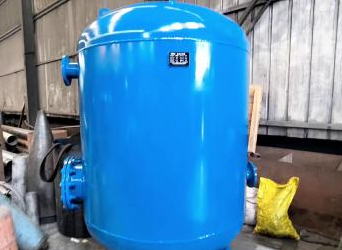Effect of Altitude on Vacuum
The influence of altitude on vacuum is mainly reflected in two aspects: atmospheric pressure and vacuum degree. Here is a detailed analysis of this impact:
1. The influence of atmospheric pressure
As altitude increases, the surface atmospheric pressure gradually decreases. Specifically, above an altitude of 1,000 meters, the atmospheric pressure drops by about 12hPa for every 100 meters of drop in air pressure. This change in air pressure has a significant impact on the performance of equipment such as vacuum pumps. Because the working principle of a vacuum pump is to generate a vacuum by reducing the gas pressure in the container, and the reduction in atmospheric pressure will directly affect the maximum vacuum that the vacuum pump can achieve.
2. The influence of vacuum degree
Definition of vacuum degree: Vacuum degree refers to the degree to which the gas pressure in the container is lower than the atmospheric pressure. It is usually expressed by "high vacuum degree" and "low vacuum degree". A high degree of vacuum means that the gas pressure in the container is much lower than the atmospheric pressure, that is, the vacuum state is good; conversely, a low degree of vacuum means that the vacuum state is poor.
The relationship between altitude and vacuum degree:
Theoretical relationship: From a physical point of view, an increase in altitude causes a decrease in atmospheric pressure, which should theoretically result in a relative increase in the vacuum in the container (i.e., a lower gas pressure in the container). However, this increase is relative to the local atmospheric pressure and does not mean that the vacuum becomes higher in an absolute sense.
Practical impact: In practical applications, the performance of equipment such as vacuum pumps is affected by atmospheric pressure. Due to the decrease in atmospheric pressure, the maximum vacuum degree that the vacuum pump can achieve at higher altitudes will decrease accordingly. Therefore, when using a vacuum pump in high altitude areas, corresponding air pressure compensation measures need to be taken to maintain its stable operation.

3. Performance changes of vacuum pumps
Work efficiency: As the altitude increases, the working pressure of the vacuum pump decreases, causing it to be unable to achieve the expected vacuum degree, thus affecting work efficiency. In order to maintain stable operation at high altitudes, it may be necessary to increase the exhaust port of the vacuum pump or use an air pressure compensation device to increase the discharge speed and vacuum degree.
Conditions of use: In high-altitude areas, in addition to the influence of atmospheric pressure, it is also necessary to consider the influence of air temperature on the viscosity and fluidity of vacuum pump oil. Low temperatures may cause an imbalance in the thermal balance of the oil film, thereby affecting the performance of the vacuum pump.




